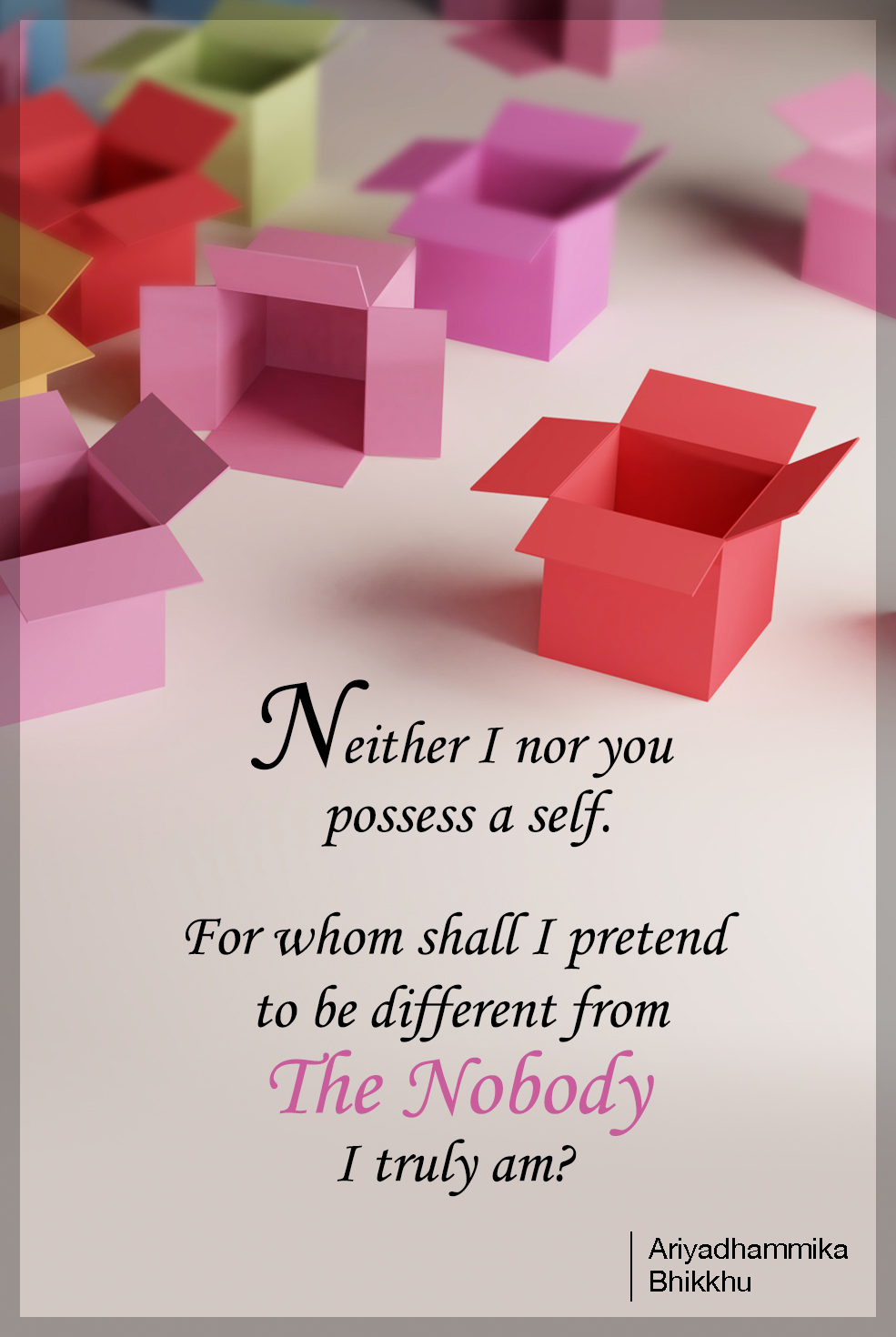A collection of Āyasmā Ariyadhammika’s illustrated poems, utterances, and reflections related to Dhamma and meditation. Many of them were composed in 2016, while being on Thudong in the hills of Sri Lanka. Layout and design added by Sis Zhen Liang.
Comments, questions, and discussions are very welcome and can be submitted below.

Click to enlarge:

































16 thoughts on “Poems and Inspired Utterances (Udānas)”
SĀDHU……Bhante , for the marvellous art work n inspiring udana!
I particularly like udana 25— Always speaks as if will recorded…… It’s very true, how we speak to our children when they were young===how they speak to us when we are old.😂, sometimes we can even see immediate response!
Yeah, the “Speak as if recorded” principle can indeed be observed well when seeing children grow up. No need to wait until next life to see the karmic effects of one’s wholseome or unwholesome speech.
Indeed a very pactical principle to apply in our daily day life when interacting with people around us.
I’m helping to do the Sutta Chanting recording in Pali, English n Hokkien. I need to particularly aware of the pronunciation of different languages, long n short sounds, tune, melody etc… especially a balanced mind state before n during recording. That applies to our spoken speech too.
TQVM for the remainder! 🙏🙏 Bhante.
Namo Buddhaya Bhante. Thank you for the very inspiring quotes. Very useful for spiritual urgency.
Udana 4: As I read the first paragraph, I imagined myself at the railway track, still lost, not knowing which direction to follow, left or rightward, as we will end up in different destination. I would probably look for a stream instead, at least we have some inkling on what to expect. Am i thinking too much? Please advise. Sadhu, Sadhu, Sadhu!
Indeed, looking for a stream would be important when wondering far from human civilization, and running danger of running out of water. However, the banks of rivers and streams are sometimes not so easily accessible, and there can be large patches of wild forest thickets, which are impossible to pass through (without a machete).
Following a railroad track has the added advantage, that one is guaranteed to reach a small town or village in the foreseeable distance, where one may obtain water and almsfood. Keep in mind, monks cannot store food for the next day.
Bhante
The DHAMMA LOOP one is another really good one.
I read it through many times and it resonates with me.
Thank you.
Sadhu Sadhu Sadhu ???
Thank you Bhante.
Marvellous art works and Excellent Gift ?
Will do self check and use it as compass, where and how I’m now?
Sadhu Bhante.
Bhanta, can you please explain the message in the beautiful poem…too ‘deep’ for me to comprehend. Thank you.
This is what the Udana with the empty boxes (no self to be found anywhere) is trying to convey:
When we observe closely, all we can find are the five aggregates: the body, feelings, perceptions, volition, consciousness. But all of them are constantly changing. Which of them is my true self? The feeling that exists now, or the one from 5 minutes ago. The perception of now, or that of before. Since all these things are constantly changing, none of them is fit to be regarded as our true self, soul, core.
The same is the case for other beings.
Despite this being the case, we act and interact with each other, as if there were a self to protect. We like to defend ourselves when facing criticism; we get offended about others’ conduct, as if they had a truly stable self.
Also, when in company with others we may try to portray a certain image of ourselves; maybe trying to pretend to be more generous, wise, knowledgeable etc. as we truly are. Or trying to hide our weaknesses. But what’s the point? Since neither we nor others have a self, whom are we trying to impress?
Thanks a lot for enlightening me. I’ll try to be a NOBODY and I’ll save my effort in trying to impress another NOBODY. Sadhu, Sadhu, Sadhu.
Hi Ayasma Ariya, may I share these enlightening quotes with families and friends on whatsapp groups/ social media? Thanks and Sadhu, Sadhu, Sadhu.
Sure; no problem. Which one(s) do you like most?
Sadhu Ayasma Ariya, I like the way you use a few simple words to bring out the profound and insightful meaning/ message of Dhamma. Each of the quote is unique and eye opening for me. I particularly like Udana 1, 3 , 9, 10, 14, 15, 16, 17, 19, 21, 22, 23, 24, 25, 26. Will contemplate on one per day and remind myself repeatedly.
Thank you
With mettā
Hello Bhante
thank you ? for this thought provocation.
you always get straight and clear to the point.
saved the poem as screen to my phone as a reminder to keep my mouth zipped.
thank you
with lots of mettā
I’m glad you found the razor blade poem meaningful.
Thanks for the feedback.
Good example of how mindfulness can aid people if practised daily.
I used to have problems remembering simple things. For instances when I want to go upstairs to get something but when I reached I had forgotten what I came for. Very frustrating indeed. Maybe being more mindful can help here.
Indeed, Bro Goh. Mindfulness aids memory. Initially sati is important at the time of learning new things, and later again when trying to recollect it.
Namo Buddhāya,
I would welcome any feedback or comments on above poems. If there are any questions related to their content or suggestions for improvement, I will try to follow up as time permits.
Sādhu x3
With mettā,
Ariyadhammika